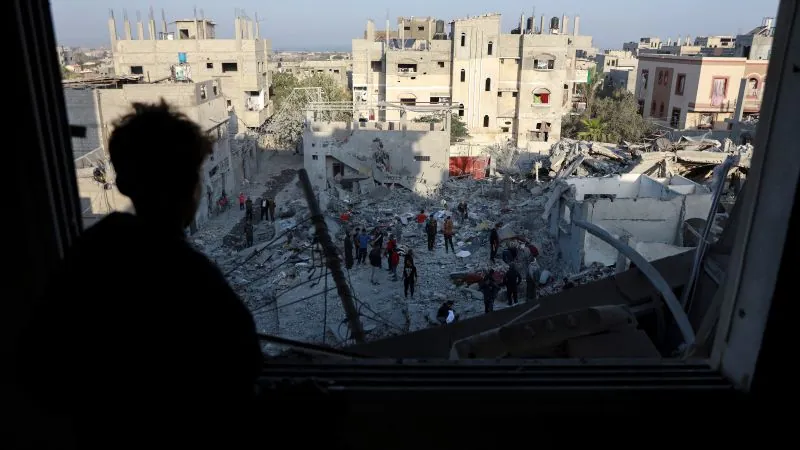
UN Warns: Alarming 70% of Gaza Deaths Are Women and Children Amid Ongoing Conflict
2024-11-09
Author: Wei
UN Warns: Alarming 70% of Gaza Deaths Are Women and Children Amid Ongoing Conflict
As the humanitarian crisis in Gaza deepens, multiple United Nations agencies are once again ringing alarm bells about the devastating impact of prolonged Israeli military operations on civilians. A report released by the UN Human Rights Office (OHCHR) reveals that nearly 70% of the casualties in Gaza within the first half of the year were women and children, highlighting what the UN describes as systematic violations of international humanitarian law by Israeli forces.
The report indicates that approximately 80% of confirmed fatalities occurred in residential buildings, with 44% of those victims being children and 26% women. OHCHR noted a troubling trend of “high numbers of babies and young children, women, older persons, and families killed together in residential buildings,” characterizing these patterns as evidence of apparent disregard for civilian life.
UN Human Rights chief Volker Türk emphasized that civilian casualties are a direct result of a failure to adhere to key humanitarian principles such as distinction, proportionality, and precaution in attacks. He warned that this pattern of destruction has persisted unabated for over a year since the war's commencement.
In a parallel report, UNICEF reported that schools in Gaza have not been spared from the violence, with at least 64 attacks on educational institutions recorded last month alone—averaging nearly two attacks per day. Tragically, it is estimated that 128 people were killed in these strikes, many of whom were children. The organization pointed out that nearly half of these incidents occurred in northern Gaza, where intense bombardment has led to mass displacement and a critical lack of aid, pushing children to the brink of catastrophe.
Furthermore, a World Health Organization (WHO) report issued recently warned of an imminent famine threat in Northern Gaza, where some of the most intense military operations have been concentrated. The report highlighted a growing crisis of starvation, malnutrition, and excess mortality, citing alarming increases in extreme food shortages.
The current state of aid into Gaza has plummeted, with the WHO revealing that the daily average of aid trucks entering the territory has decreased to a meager 58 per day—down from around 500 before the conflict escalated, marking the lowest level of aid shipment in nearly a year. The price of food has skyrocketed by over 300% since the conflict’s onset, further aggravating the suffering of the Gazan populace.
WHO Director-General Tedros Adhanom Ghebreyesus expressed grave concern over the unfolding scenario, calling for a rapid and safe escalation of humanitarian aid, particularly food and medical supplies, to avert further catastrophe.
In response to the UN's alarming findings, the Israeli agency responsible for managing aid transfers to Gaza contested the famine warnings, arguing that such claims often originate from organizations with partial or biased perspectives. They asserted that the Israel Defense Forces (IDF) have repeatedly urged residents in high-intensity combat zones to relocate safely and are actively facilitating humanitarian efforts in central and southern Gaza.
As the situation continues to deteriorate, calls for immediate international intervention and aid mount, emphasizing the urgent need to protect innocent lives and uphold humanitarian principles amid the ongoing conflict.



 Brasil (PT)
Brasil (PT)
 Canada (EN)
Canada (EN)
 Chile (ES)
Chile (ES)
 España (ES)
España (ES)
 France (FR)
France (FR)
 Hong Kong (EN)
Hong Kong (EN)
 Italia (IT)
Italia (IT)
 日本 (JA)
日本 (JA)
 Magyarország (HU)
Magyarország (HU)
 Norge (NO)
Norge (NO)
 Polska (PL)
Polska (PL)
 Schweiz (DE)
Schweiz (DE)
 Singapore (EN)
Singapore (EN)
 Sverige (SV)
Sverige (SV)
 Suomi (FI)
Suomi (FI)
 Türkiye (TR)
Türkiye (TR)